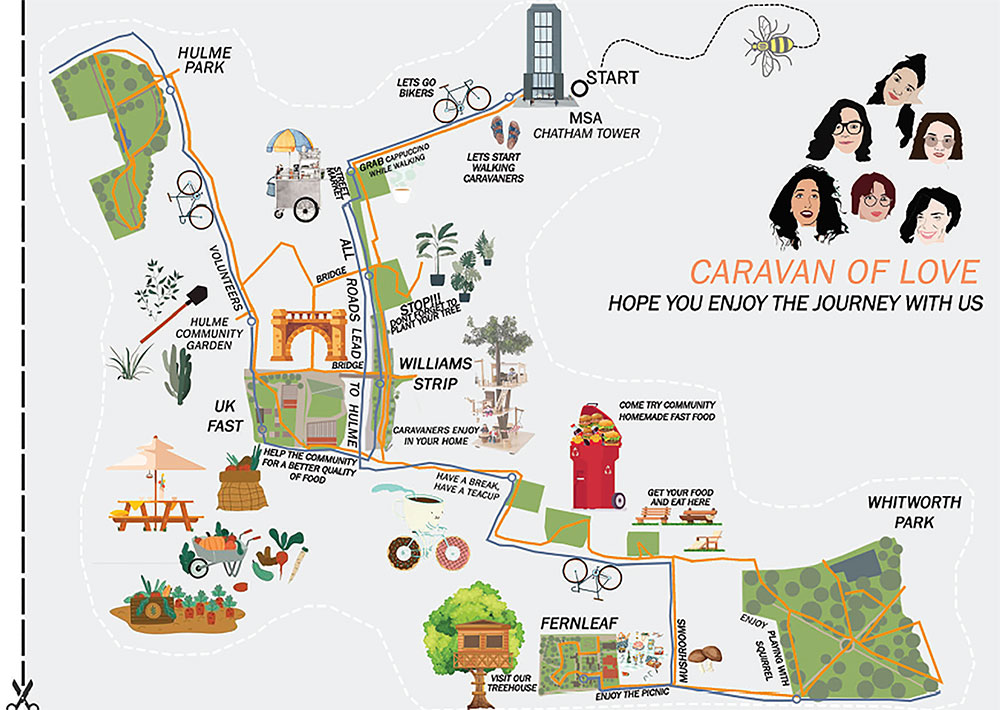The exploration of a resilient urbanism would be a key concern in a normal year, but this preoccupation has assumed a heightened sense of importance this year as we have navigated the realities of operating within the strictures of the pandemic. Yet this has in some ways also changed – even liberated – preconceptions of what a course could or should be and has united students and staff alike in recognising the global possibilities of Architecture and Urbanism.
Our research offering this year focused on six optional projects exploring a plethora of urban issues in a variety of locations. In addition to local territories in Manchester and Trafford, other settings were examined in Stoke-on-Trent, Wolverhampton, Crewe, and further afield in Barahona de Fresno, Spain, resulting in a range of proposals through which students learn as a group about the transformative potential of urban design.
The theme of resilience continued as our September 2020 student cohort were joined in January 2021 by our inaugural second cohort, creating a revised template for a well-established course. It is anticipated that the reciprocal energy created from these overlapping cycles will create unique opportunities for student debate and collaboration in issues of global urbanism.
The introduction of this second cohort, coupled with students spending much of the year in their home cities has led to an incredibly varied range of thesis projects and dissertation topics with a notably international agenda – from the future of historic city quarters in China, to issues of the provision of homes and Planning concerns in the UK. Throughout these endeavours, students are guided by a range of established and new tutors from research and practice contexts, and it is with thanks to all involved that these activities continue to contribute to the richness and vitality of the course, despite the recent challenges.


